Carolina experts: Student mental health

The University of North Carolina at Chapel Hill is committed to addressing the mental health needs of the Carolina community.
Here is a summary of steps UNC-Chapel Hill has taken to increase access to mental health services for the entire community:
- Well-being days, which give students a break from classes to focus on mental health and overall wellness, were introduced in 2020 in response to the effects of remote learning and COVID-19. Those days were permanently added to the academic calendar in 2021.
- UNC-Chapel Hill hosted its first Mental Health Summit in 2021, bringing together faculty, staff and student leaders to discuss the needs of our community in response to the current mental health crisis. The Summit addressed three important and related topics specific to mental health at Carolina: campus culture, crisis services and prevention. The University continues to host monthly mental health seminars during the academic year on a wide range of topics.
- In 2022, UNC-Chapel Hill established the Suicide Prevention Institute. The Institute focuses on three main components: causation and neurobiology, implementation of clinical prevention, and outreach, community engagement, and dissemination.
- UNC-Chapel Hill is in a four-year partnership with JED Campus. JED is a nationally recognized resource center that provides access to experts and will improve the University’s ability to prevent and respond to mental health issues.
- The Heels Care Network website launched in 2022 and includes a comprehensive mental health resource hub for users to search and filter options for mental health support, a live peer-support chat, mental health trainings and more.
- Counseling is available through Counseling and Psychological Services (CAPS). CAPS’ primary mission is to offer short-term counseling through brief individual therapy appointments and group therapy offerings.
Being part of a campus community means we don’t just look out for ourselves; we also do our part to take care of others. Decades of research, much of it conducted right here in Chapel Hill, shows that strong social ties are key to a thriving and meaningful life. We all have a role in making Carolina the kind of place that builds and sustains that type of culture.
While we think carefully about how to support our students, faculty, and staff, we’re also focused on UNC-Chapel Hill’s broader role in addressing mental health. As the state’s flagship public university, we work every day to support people on the front lines of this challenge across our society — teachers, doctors, counselors, nurses, and community advocates who are making a difference far beyond the boundaries of campus. – Chancellor Kevin Guskiewicz
Experts
To connect with an expert, email mediarelations@unc.edu.
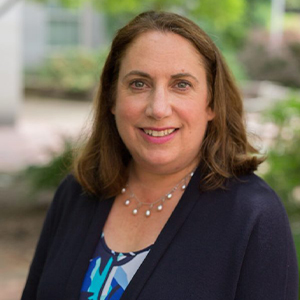
Samantha Meltzer-Brody
Samantha Meltzer-Brody is chair of the Department of Psychiatry at the University of North Carolina at Chapel Hill and directs the UNC Center for Women’s Mood Disorders. She champions the Taking Care of our Own Program at the UNC School of Medicine that promotes well being among medical students, resident physicians and physician faculty.
She is also an advisor to University leaders as they address the current mental health needs for the campus community and co-led the 2021 UNC Mental Health Summit. Currently, Dr. Meltzer-Brody leads the effort with UNC Health and the Department of Psychiatry on broad based efforts to improve the mental health of our youth across North Carolina. This includes a new partnership with NCDHHS for a new Youth Behavioral Health Hospital.
Dr. Meltzer-Brody has been featured by Forbes and has given numerous interviews in outlets including the Washington Post, CNN, WRAL, WUNC, and North Carolina Health News.

Sarah Reives-Houston
Sarah Reives-Houston is the director of the School of Social Work’s Behavioral Health Springboard. She has developed and facilitated training and curriculum materials focused on mental health, substance abuse, systems of care for individuals and families and developed all technical reports for state, federal and specialized accountability and reporting processes. Her professional development interests focus on recognizing, managing, and mitigating the impacts of trauma on client populations and service providers.
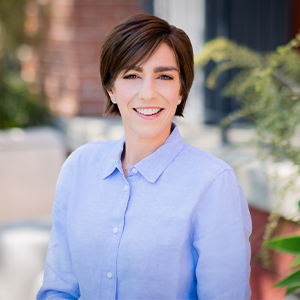
Dr. Danielle Roubinov
Dr. Danielle Roubinov is an Associate Professor in the Department of Psychiatry at UNC and the director of the Child and Adolescent Mood and Anxiety Disorders Program (CHAAMP). In her program of research, Roubinov conducts studies to understand how early experiences of stress and trauma shape children’s development and well-being, and the factors that can help promote positive adjustment even in the
context of adversity. Her work spans multiple disciplines, exploring the role of risk and protective factors across biological, psychological, and sociocultural domains as they affect children’s trajectories of mental health. As the director of the Child and Adolescent Mood and Anxiety Disorders Program (CHAAMP) in the UNC Department of Psychiatry, Roubinov leads a basic and translational research to develop and disseminate interventions that prevent and treat mental health problems in youth.
Dr. Roubinov has been featured by HuffPost and Psychology Today.

Angela Strain
Angela Strain is chief of the psychiatric emergency at UNC Health who can describe the rise in kids and teens seeking psychiatric care for depression and suicidal thinking. She can discuss signs of mental health crisis and how to keep those in crisis safe.
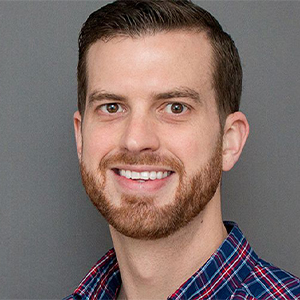
Adam Bryant Miller
Adam Bryant Miller is a clinical psychologist and suicide researcher in the Department of Psychology and Neuroscience in the College of Arts & Sciences at UNC-Chapel Hill. He can discuss child and adolescent mental health and how adolescents process emotions. Bryant has also researched a rise in Black youth suicide rates and what can be done to address prevention. More about his background here.

Mitch Prinstein
Mitch Prinstein is a professor of psychology and neuroscience at UNC-Chapel Hill and chief science officer of the American Psychological Association. He serves as co-director of the Winston National Center on Technology Use, Brain and Psychological Development at Carolina where he researches adolescent peer relationships and the stress responses directly related to suicide attempts in adolescent girls. He can discuss the psychological processes that put teens at risk for suicide. More about his background here. He has been recently featured by NPR, CBS News and The Hill.
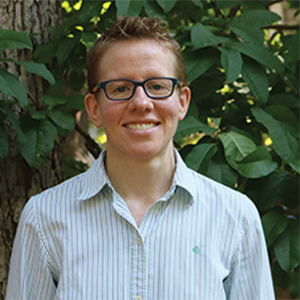
Avery Cook
Avery Cook, LCSW, is Interim Director of CAPS. Cook works with students on a variety of issues including crisis work, adjustment, anxiety, depression, substance abuse as well as issues related to LGB clients, gender identity, and gender expression.

Jane Cooley Fruehwirth
Jane Cooley Fruehwirth is an economist at UNC-Chapel Hill who delves into the determinants of mental health among adolescents and college students. Her research has focused on the mental health toll of the COVID-19 pandemic and she can discuss the steep rise in depression and anxiety among first-year college students. More about her background here. She has been recently featured by NPR.
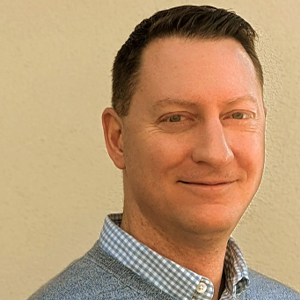
David Obergfell
David Obergfell, DSW, LCSW, is Executive Director of Wellbeing and Violence Prevention. Obergfell can share systemic approaches to best support community mental health and well being.
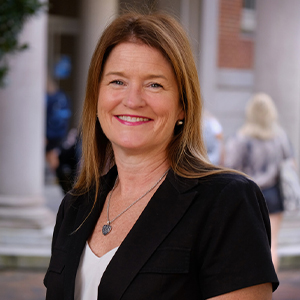
Dorothy Espelage
Dorothy Espelage, Ph.D., is a William C. Friday Distinguished Professor of Education. Espelage’s research focuses on translating empirical findings into prevention and intervention programming and she has secured over $15 million of external funding. She advises members of Congress and Senate on bullying prevention legislation. She conducts regular webinars for CDC, NIH, and NIJ to disseminate research. Her areas of expertise are as follows: prevention science, school-based interventions, social-emotional learning interventions, bullying prevention, teen dating violence, sexual harassment/violence and school-based suicide prevention. She has been featured in multiple media stories, including the BBC and The New York Times.
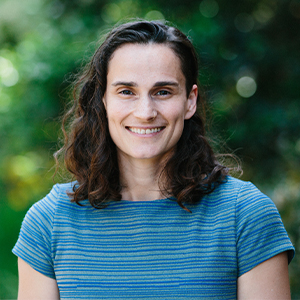
Marisa Marraccini
Marisa Marraccini, Ph. D., specializes in promoting the mental health and well-being of students and preventing health risk behaviors. Marraccini’s avenue of research aims to promote child and adolescent mental health in the context of their daily lives – school settings. Her research is focused on preventing suicide and supporting adolescents with mental health challenges by: (A) identifying school-related modifiable protective and risk factors and accounting for underlying mechanisms for risk; and (B) developing and evaluating interventions informed by school context for preventing youth suicide and promoting mental health. She is particularly interested in characterizing adolescent school experiences following psychiatric hospitalization, the application of school (academic and social) context to inform hospital interventions and school supports, intelligent use of technology to enhance prevention and intervention efforts, and partnering with individuals with lived experiences to co-design and develop solutions to the everyday challenges facing youth. Currently, Marraccini is developing a virtual reality intervention to supplement inpatient treatment for adolescents hospitalized for suicide-related crises and leading research that partners with youth to develop and disseminate therapeutic skills by way of social media. She has been featured in multiple media stories, including EducationWeek and the News & Observer.


